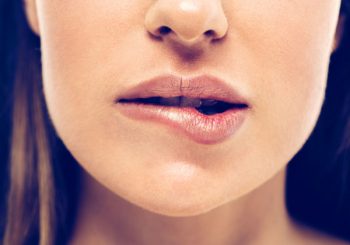By Sayer Ji
Contributing writer for Wake Up World
Originally published at greenmedinfo.com and reproduced here with permission.
Evidence-based natural alternatives to drugs for canker sores abound!
Canker sores (apthous mouth ulcers) afflict approximately 20% of the population, and are cause for great annoyance. Always painful and sometimes an eye sore, they are the most common type of mouth ulcer, with women being more affected than men for unknown reason.
[pro_ad_display_adzone id=”110028″]
While they are almost invariably self-limiting, with complete scar-free healing taking approximately seven to ten days, many opt for conventional treatments which include antiseptics (chlorhexidine), antiinflammatory drugs (amlexanox), antibiotics (tetracyclines) and corticosteroids (triamcinolone acetonide), all of which carry unpleasant side effects.[1]
For those looking for natural alternatives a recent study published in the journal Quintessence International, titled “Efficacy of honey in comparison to topical corticosteroid for treatment of recurrent minor aphthous ulceration: A randomized, blind, controlled, parallel, double-center clinical trial,” found that honey was as effective as topical steroid treatment for accelerating the resolution of symptoms.
But there are other effective natural alternatives, such as:
- Vitamin B12: Surprisingly, the lower quality cyanide-based form of B12 (cyanocobalamin; we prefer methylcobalamin for general health) has been found to be 96% effective in lessening symptoms of canker sore. A 2008 study concluded: “Cyanocobalamin treatment maybe beneficial for patients with RAU even when serum cobalamin levels are normal. We suggest that higher serum cobalamin levels should be attained in patients with RAU for mucosal protection.”[2]
- Eliminate Cow’s Milk Products: While there are plenty of reasons to avoid cow’s milk protein (butter being relatively benign and beneficial, being free of the highly antigenic milk proteins), for canker sore, a 2012 study found that having an immune reactivity to cow’s milk proteins is associated with increased occurrence of canker sore. They reported: “These results indicate the strong association between high levels of serum anti-SCMP IgA, IgG, and IgE antibodies, especially to caseins: ?-, ?-, and ?-casein from cow’s milk and clinical manifestations of RAU [recurrent apthous ulcer].”[3]
- Garlic (Allicin): The primary active component of garlic known as allicin has been suggested to be an ideal anti-canker sore remedy. As documented in a 2008 review on the topic, garlic “decreases inflammatory factors secretion, reduces the migration of neutrophils, inhibits bacterium and virus, antagonizes oxidation and regulate immunity. By these bioactivities of anti-inflammation, anti-microbial activity, anti-oxidation and immunomodulation, the allicin may be an effective therapeutic candidate to control the pain, promote ulcer healing and prevent the recurrence of RAU [recurrent apthous ulcer].”
- Laser Therapy: A recent study found that low-level laser therapy reduced the pain and the inconvenience of eating, drinking, and brushing teeth for patients with RAS [recurrent apthous ulcers], compared with placebo.[4]
- Eradicate Helicobacter Pylori Infection: A 2014 meta-analysis found that H. pylori infection is associated with an increased risk of RAS [recurrent apthous ulcers], and that the eradication of H. pylori in the stomach may promote relief of RAS [recurrent apthous ulcer] symptoms and healing of oral ulcers, and even prevent the occurrence of RAS.”[5] For natural ways to eradicate H. pylori, take a look at our extensive database on the subject: 50+ Natural Ways to Kill H. Pylori.
- Avoid Gluten: There are over 200 clinically confirmed reasons to avoid gluten. But regardless of whether or not you think you are sensitive, for those suffering from canker sores, gluten avoidance is a good strategy. A 2008 study found that, “Oral mucosal lesions may be markers of chronic gastrointestinal disorders [caused by gluten], such as those causing malabsorption.” The researchers concluded: “The epidemiological association found between coeliac disease and aphthous-like ulcers suggests that recurrent aphthous-like ulcers should be considered a risk indicator for coeliac disease, and that gluten-free diet leads to ulcer amelioration.”[6]
So there you have it. Rather than looking at canker sores as ‘idiopathic,’ i.e. “we just don’t know what causes it,” you can take back control of your health by incorporating very simple dietary and nutritional changes. By employing safe, evidence-based natural interventions, and avoiding gluten and dairy — a change that has many unintended, beneficial ‘side effects’ — you may find your symptoms resolving faster than you expected.
Article sources:
[1] Belenguer-Guallar I, Jiménez-Soriano Y, Claramunt-Lozano A. Treatment of recurrent aphthous stomatitis. A literature review. J Clin Exp Dent. 2014 Apr 1;6(2):e168-74. doi: 10.4317/jced.51401. eCollection 2014 Apr. Review. PubMed PMID: 24790718; PubMed Central PMCID: PMC4002348.
[2] Erim Gulcan, Serdar Toker, Hasan Hatipo?lu, Aynur Gulcan, Aysun Toker. Cyanocobalamin may be beneficial in the treatment of recurrent aphthous ulcers even when vitamin B12 levels are normal. Am J Med Sci. 2008 Nov;336(5):379-82. PMID: 19011392
[3] Irina Besu, Ljiljana Jankovic, Aleksandra Konic-Ristic, Sanvila Raskovic, Valeri Besu, Milanko Djuric, Sasa Cakic, Ileana Ursu Magdu, Zorica Juranic. The role of specific cow’s milk proteins in the etiology of recurrent aphthous ulcers. J Oral Pathol Med. 2012 Aug 24. Epub 2012 Aug 24. PMID: 22924810
[4] Margit Albrektson, Lennart Hedström, Håkan Bergh. Recurrent aphthous stomatitis and pain management with low-level laser therapy: a randomized controlled trial. Oral Surg Oral Med Oral Pathol Oral Radiol. 2014 May ;117(5):590-4. Epub 2014 Feb 6. PMID: 24725989
[5] Lin Li, Huiyuan Gu, Guoxin Zhang. Association between recurrent aphthous stomatitis and Helicobacter pylori infection: a meta-analysis. Clin Oral Investig. 2014 Jul ;18(6):1553-60. Epub 2014 Mar 29. PMID: 24682540
[6] G Campisi, C Di Liberto, A Carroccio, D Compilato, G Iacono, M Procaccini, G Di Fede, L Lo Muzio, A Craxi, C Catassi, C Scully. Coeliac disease: oral ulcer prevalence, assessment of risk and association with gluten-free diet in children. Dig Liver Dis. 2008 Feb ;40(2):104-7. Epub 2007 Dec 11. PMID: 18063428
Recommended articles by Sayer Ji:
- Flaxseed: Just An Ounce A Day May Extend Your Life
- 4 Ways To Keep from Losing Your Eyesight
- Has The Holy Grail of Radioprotective Foods Been Found?
- Toxic Massage: The Dark Side of A Highly Therapeutic Modality
- Magnesium Puts Psychiatric Drugs to Shame for Depression
- CDC Stats: Opioids Kill 4x More Than the Vietnam War; Natural Medicine is the Solution
- 6 Natural Ibuprofen Alternatives Backed by Clinical Research
- Brain Regeneration: Why It’s Real and How To Do It
- Beet Juice Boosts Cognitive Function In One Dose
- 6 Bodily Tissues That Can Be Regenerated Through Nutrition
About the author:
Sayer Ji is the founder of Greenmedinfo.com, a reviewer at the International Journal of Human Nutrition and Functional Medicine, Co-founder and CEO of Systome Biomed, Vice Chairman of the Board of the National Health Federation, and Steering Committee Member of the Global Non-GMO Foundation.
For more, visit GreenMedInfo.com and Facebook.com/GreenMedInfo, or sign up for GreenMedInfo’s free e-Newsletter.
© January 31st, 2019 GreenMedInfo LLC. This work is reproduced and distributed with the permission of GreenMedInfo LLC. Want to learn more from GreenMedInfo? Sign up for their newsletter here.
[pro_ad_display_adzone id=”110027″]








